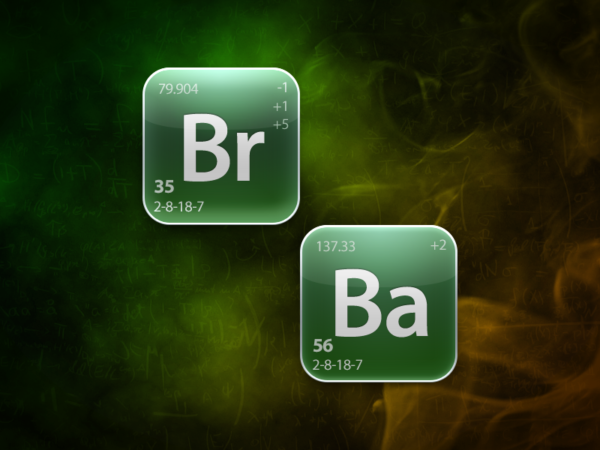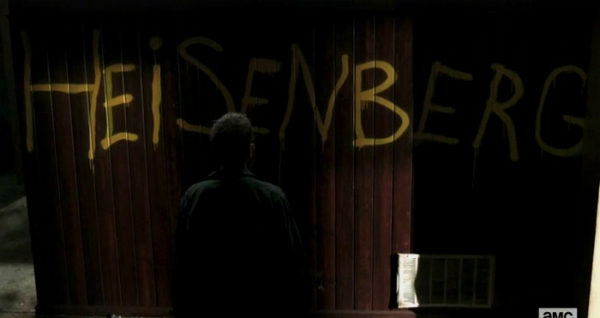Why I like #BreakingBad
“Doctor, my wife is seven months pregnant, with a child we didn’t even plan. My 15 year-old son has cerebral palsy. I am an extremely gifted chemistry teacher. When I can work, I make $ 43,700 a year and nevertheless I have watched my work colleagues and friends surpass me in almost every way you can imagine. And in 18 months I’ll be dead! And you’re asking me why I need to get away?!”
Walter White. The main character of ‘Breaking Bad’.
[Contains spoilers] After watching the complete saga for the fourth time, I can only say that we are talking here about a cult product.
What I like most about the series are the tiny details. The damned details. I didn’t pay them the attention they deserved until I watched the series for the fourth time round. Not before. The final scene of the ‘Ozymandias’ episode, when the series is about to come to a close, when Walt loses everything, is nothing less than sensational. ‘The fly’, is an ode to the ego. The characters evolve. Nothing ends up how it started out, and yet everything follows a tight script with no loose ends, where every transformation is justified by hundreds, if not thousands, of little details. The musical moments, wisely chosen by composer, Dave Porter, give certain episodes and certain characters a ‘vintage’ touch which allows us to bear witness to an absolute drama with a wry smile on our faces.
The funny thing is, the first person to tell me about this series was a priest. He did so in the context of reflection. He wasn’t at all wrong. The series invites you to reflect on things and reflect deeply. The meaning of life, man’s desperation taken to the extreme, emotional manipulation, dependency. It is of course fiction. But it comes at a price: an emotional price.
The series is a drama with touches of black humour, both set and filmed in Albuquerque, New Mexico. The plot tells of a chemistry teacher [Walter White; alias Heisenberg] who, faced with the tragic news that he has incurable cancer, attempts to guarantee his family’s future by producing and trafficking with methamphetamines which he makes himself, thanks to his ‘know-how’. Well, this is the first of the great lies. This argument is only valid for the first episode. From then on, our main character, now a drug-dealing Godfather, realizes that he is doing none of this for his family but rather because he likes it, because he is a bad guy, who likes to lie, to kill, to manipulate and to wield power. And more so every day. Or maybe not.
The cast all play a leading role and each of them is better than the next. I’ll talk about them in later ‘posts’. The series’ creator, Vince Gilligan, hit the nail on the head as regards what he was trying to put over: Situations which at first glance are unsurmountable and decisions by the leading character which are tragic and allow for no going back. We see him in scenarios from which it is apparently impossible to escape without doing so in a tragic way, killing, deceiving or provoking a terrible disaster and causing unimaginable collateral damage.
I like the series basically because of that. Because the situations turn out badly in these days when we are far too used to series ending with ‘kiss and make up’, love and stability. Here things are different and we face moral dilemmas. You have to sit back and think after each episode.
I also like the fact the series is for those who know how to wait. There’s action. Lots of it, don’t get me wrong. But the viewer will not see it in short sequences. Things take time to happen. There are long sequences; something which gives realism to the various situations. The dialogues are long too, with content which is often not relevant to the story but is there anyway, to make it sound real. The action situations, the conflicts and the scenarios are all credible, and this has an impact on the viewer.
We witness the main character slowly destroying not only himself, but everything around him too. He is a true criminal, and behaves like one. He has no feelings and this brings us, the viewers, face to face with how low human nature can actually go; something which not all series can do.
Why do we confront the leading character? Why do we ask ourselves questions? All this is because at the start of the series we empathised with Walter. He is a victim and this makes us identify with him. This moral ambiguity puts us on his side, right until the end, without us knowing why.
I see Walter as a businessman. One of those businessmen who risks everything. However, the key lies in the fact that he isn’t risking anything for anyone else. He does it only for himself. It’s his ego. He lives for himself alone. He doesn’t care about money. He is constantly faced with the choice of the ‘frying pan’ or the ‘fire’. And slowly but surely he descends into the depths without us realising and we stick by him through thick and thin, right to the end. A superb job by the scriptwriters.
His gradual ‘dehumanization’ leads him to carry out the most evil of acts. This we do realise. He is a man who loses his heart. An evil man. We love him because we identify with him from the start. We see him as a victim and he manages to deceive us until the final episode. Jesse, his companion, on the other hand, always tries to be fair. He is a good person. A drug user at times, but, even so, one with a moral perspective. One with principles. Walter tricked us right from the start. He is a killer. At the end of the series he attempts to redeem himself by saving Jesse’s life in an attack paternalism which, in my humble opinion, is the only thing which is out of place. It is out of place because Heisenberg should have died carrying the heavy burden of having his family destroyed and his partner murdered by his own hands.
Nevertheless, ‘Breaking Bad’ finished as it should have; with a dignified ending.









